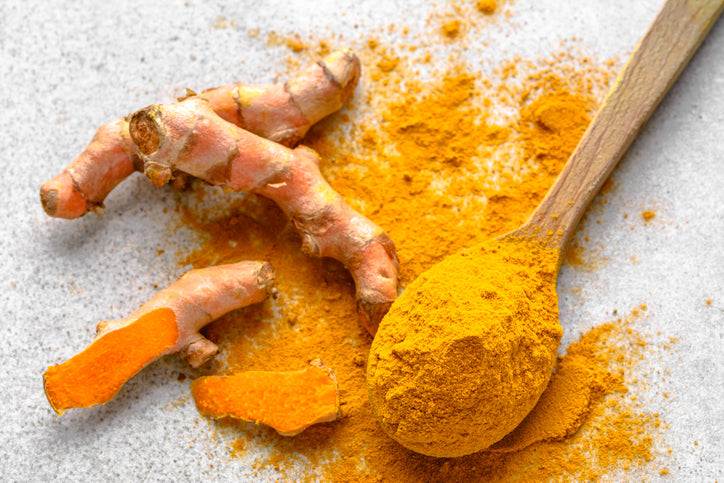Why We Test for Glyphosate
Redd Remedies tests all of our products for glyphosate, a broad-spectrum herbicide.
Cities, counties and countries across the globe are banning or limiting the use of glyphosate, but it is the most heavily used agricultural chemical in the United States, and its residues are evident in our food supply.
Applications of glyphosate products have risen to astounding levels. Since its introduction, a reported 3.5 billion pounds have been sprayed in the USA and 18.9 billion pounds worldwide. In the USA alone, over 750 pesticide and herbicide products containing glyphosate are on the market.
What is glyphosate?
First registered in 1974, glyphosate is a broad-spectrum, or non-selective herbicide. It kills plants.
Functioning as a “systemic herbicide,” glyphosate moves into the roots, growth points and fruit of any treated plant – washing the fruit will not wash off glyphosate that is systemically absorbed. It prevents treated plants from making proteins needed for growth by blocking a specific enzyme pathway, known as the shikimic acid pathway. The plants essentially starve to death.
Genetically engineered crops that are “Roundup-Ready” are designed to be able to survive glyphosate applications and are heavily dosed with glyphosate products that are designed specifically for use on: corn, soybeans, sugar beets and cotton.
Contrary to promises that genetically engineered food crops would reduce the use of pesticides and herbicides, made when they were first introduced in the ’90s, use of Roundup has increased 15-fold since then. As weeds are becoming more herbicide-resistant, heavier doses are being applied.
Glyphosate in Our Food Supply
A 2018 inspection by the US FDA found glyphosate in 63% of corn samples and in 67% of soybean samples. They did not test oats or wheat, crops that are typically sprayed heavily before harvest, to kill off the plants and ready the crop for harvest more quickly. This process is also used on bean crops as well.
The Canadian Food Inspection Agency found glyphosate in 80-90% of a variety of wheat-based products on the market. According to the National Agriculture Statistics Service, in 2017, 12.4 million pounds of glyphosate were applied to wheat grown in the USA.
The Environmental Working Group commissioned two rounds of tests that found glyphosate in 95% of popular oat-based products tested and in 100% of the wheat-based products tested, including brand name cereals, pastas and snack bars.
Other foods tested in 2015-2016 that contained glyphosate include: barley, buckwheat, chickpeas, and kidney and pinto beans.
Environmental Issues
Soil: Glyphosate’s blocking the shikimic pathway not only kills plants, it also destroys bacteria in the soil. As plant nutrients in the soil are reduced and soil bacteria destroyed, animals like earthworms and amphibians are adversely affected.
Water: Although glyphosate binds closely to soil, it has the potential to contaminate surface waters because it is not easily broken down. It has been found in rainwater in agricultural areas and even in wastewater treatment facility samples. A 2002 study of midwestern streams found glyphosate in 36% of the samples, but a degradation product (AMPA) was found in 69% of the samples.
Other ingredients in glyphosate-based herbicides have also proven to be harmful, and their toxicity in combination with glyphosate may be even greater.
Human Health Concerns
In 2015, the World Health Organization reclassified glyphosate as “probably carcinogenic” to humans, and it is listed as a cancer-causing chemical in the California Safe Drinking Water & Toxic Enforcement Act of 1986 (Proposition 65).
Research completed at the University of Washington showed that glyphosate significantly increased risk of developing non-Hodgkin’s lymphoma, a cancer of the immune system. It has been found to have adverse effects on the liver and kidneys; it can damage DNA and may be endocrine disruptive.
Glyphosate has been patented as an antibiotic. The bacteria that do survive its application become antibiotic-resistant, contributing to a rise in antibiotic-resistant bacteria in the soil and in our guts.
Bacteria in the gut can also be destroyed by glyphosate’s blocking of the shikimic pathway. When gut microbiota, so critical to our health, is disturbed and out of balance, it can contribute to a multitude of illnesses and diseases.
Legal Liability
Juries have recently awarded huge judgements against Monsanto in cases claiming serious health damage from exposure to their glyphosate products. Appeals may reduce the financial awards, but there are roughly 13,400 other lawsuits pending from people who claim damage to their health from exposure to Roundup and other glyphosate-based herbicides.
955 Testing
Redd Remedies tests all of our products for glyphosate, as well as for 954 other contaminants.
Here’s a link to additional information on our 955 Testing program: https://blog.reddremedies.com/955-2/
Related Posts


